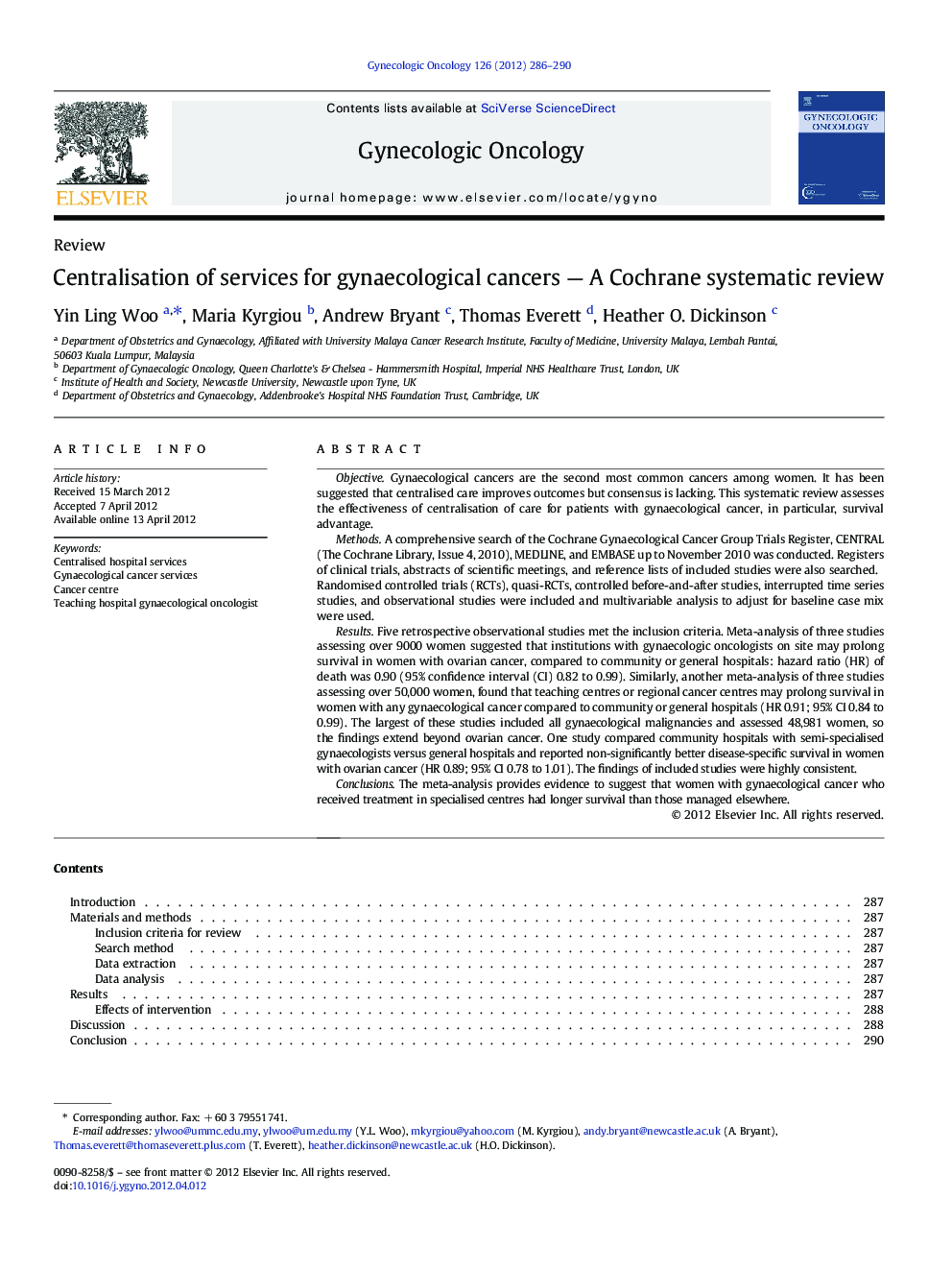| Article ID | Journal | Published Year | Pages | File Type |
|---|---|---|---|---|
| 3947011 | Gynecologic Oncology | 2012 | 5 Pages |
ObjectiveGynaecological cancers are the second most common cancers among women. It has been suggested that centralised care improves outcomes but consensus is lacking. This systematic review assesses the effectiveness of centralisation of care for patients with gynaecological cancer, in particular, survival advantage.MethodsA comprehensive search of the Cochrane Gynaecological Cancer Group Trials Register, CENTRAL (The Cochrane Library, Issue 4, 2010), MEDLINE, and EMBASE up to November 2010 was conducted. Registers of clinical trials, abstracts of scientific meetings, and reference lists of included studies were also searched.Randomised controlled trials (RCTs), quasi-RCTs, controlled before-and-after studies, interrupted time series studies, and observational studies were included and multivariable analysis to adjust for baseline case mix were used.ResultsFive retrospective observational studies met the inclusion criteria. Meta-analysis of three studies assessing over 9000 women suggested that institutions with gynaecologic oncologists on site may prolong survival in women with ovarian cancer, compared to community or general hospitals: hazard ratio (HR) of death was 0.90 (95% confidence interval (CI) 0.82 to 0.99). Similarly, another meta-analysis of three studies assessing over 50,000 women, found that teaching centres or regional cancer centres may prolong survival in women with any gynaecological cancer compared to community or general hospitals (HR 0.91; 95% CI 0.84 to 0.99). The largest of these studies included all gynaecological malignancies and assessed 48,981 women, so the findings extend beyond ovarian cancer. One study compared community hospitals with semi-specialised gynaecologists versus general hospitals and reported non-significantly better disease-specific survival in women with ovarian cancer (HR 0.89; 95% CI 0.78 to 1.01). The findings of included studies were highly consistent.ConclusionsThe meta-analysis provides evidence to suggest that women with gynaecological cancer who received treatment in specialised centres had longer survival than those managed elsewhere.
► Women with gynaecological cancers treated in specialised centres or hospitals with specialist resources survive longer than those managed elsewhere. ► Studies on the impact of centralisation of cancer care on the quality of life of patients are still lacking. ► Evidence for centralisation of cancer care is limited to developed countries and cannot be extended to low-middle income countries.
